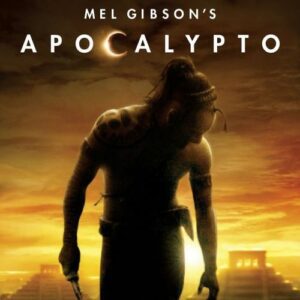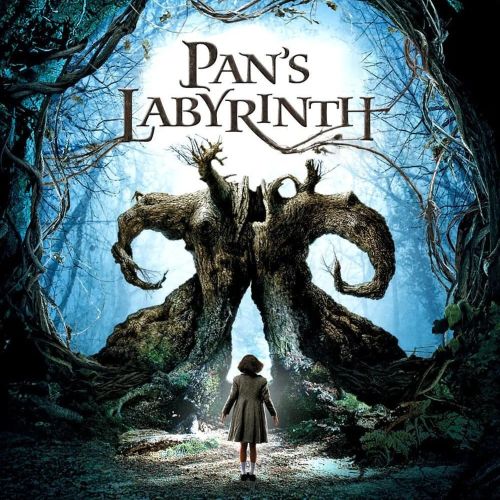Apocalypto (2006)
| Description | |
|---|---|
| Country of Origin | United States of America |
| Language | Maya |
| Genre | Thriller |
| Cast | Rudy Youngblood, Raoul Trujillo, Mayra Sérbulo, Dalia Hernández, Jonathan Brewer, Gerardo Taracena |
| Directed by | Mel Gibson |

Mel Gibson’s Apocalypto (2006) is a gripping and intense cinematic experience that immerses viewers into the heart of a collapsing Mesoamerican civilization. While often noted for its relentless action, authentic language use, and vivid portrayal of jungle life, the film also weaves a rich tapestry of mythological themes that elevate it beyond mere historical fiction. From the very beginning, the narrative is steeped in symbolism, prophecy, and spiritual resonance, reflecting the deep interconnection between the Mayan people and their mythological worldview.
The story follows Jaguar Paw, a young hunter from a peaceful tribe, whose life is upended when his village is attacked by warriors from a nearby Mayan city. Taken captive and marked for sacrifice, he embarks on a harrowing journey of survival, transformation, and spiritual awakening. Beneath the physical journey lies a mythic undercurrent that echoes the universal hero’s journey found in countless ancient traditions. Jaguar Paw’s escape into the jungle, his fight for survival, and eventual reunion with his family mirror the classic structure of descent, trial, and rebirth. His passage through the forest and the challenges he faces are not just physical trials—they are rites of passage, symbolic of death and resurrection, common themes in many mythologies including those of the Maya.
One of the most potent mythological elements in the film is the role of prophecy. Early in the story, Jaguar Paw is warned by his father about fear and the need to overcome it, foreshadowing his spiritual evolution. Later, a sickly, plague-ridden girl delivers a haunting prophecy that comes true with eerie accuracy, a moment that recalls the role of oracles and seers in indigenous and ancient religions. Her trance-like state and cryptic message add a supernatural layer to the otherwise brutal realism of the film, reminding viewers that for the Maya, divine messages often came through the least expected voices.
Ritual sacrifice, a central and controversial aspect of the film, is portrayed with dramatic intensity. While scholars debate the historical accuracy of the scale and portrayal of these events, their mythological basis is undeniable. The Maya believed that blood was a sacred offering that sustained the gods and kept the cosmos in balance. In Apocalypto, the act of sacrifice is more than spectacle—it is part of a cosmic order, a necessary ritual to appease higher powers. The solar eclipse that halts the ceremony serves as a powerful divine intervention, interpreted by the priests as a sign from the gods. This celestial event is not merely astronomical but deeply spiritual, reflecting the Mayan belief in the heavens as a realm intertwined with earthly fate.
Nature itself is a mythic force in the film. Animals act as omens and symbols—Jaguar Paw earns his name through an encounter with the creature that later becomes his guiding spirit. The jungle is both a place of danger and sacred power, echoing animistic traditions where every element of nature holds spiritual significance. Even the weather, the movement of animals, and the sounds of the forest are treated with reverence and fear, as though the natural world is an extension of divine will. This portrayal aligns closely with the Mayan cosmology, in which humans were not separate from nature but embedded within a living, breathing universe governed by invisible forces.
The arrival of the Spanish ships at the end of the film adds another mythological dimension. To the characters, this moment is not just a historical turning point—it symbolizes the end of one world and the beginning of another. In Mayan belief, time was cyclical, composed of great ages or “suns” that would rise and fall. The arrival of outsiders can be seen as the prophesied transition into a new age, filled with uncertainty and spiritual consequence. Jaguar Paw’s decision to retreat into the jungle rather than engage with the newcomers reinforces the theme of returning to the sacred, to tradition, and to the divine connection with the land.
Despite its mythological richness, Apocalypto is not without criticism. Historians and archaeologists have pointed out the liberties taken with timelines, cultural details, and the portrayal of Mayan society as uniformly violent and decadent. The conflation of different Mesoamerican practices into a singular narrative has led to accusations of oversimplification and sensationalism. However, from a mythological standpoint, the film succeeds in conveying the emotional and spiritual truth of a people facing the end of their world. It channels the archetypal fears, dreams, and rituals that have defined human existence for millennia.
In its heart-pounding action and evocative imagery, Apocalypto offers more than a survival story—it offers a myth. It reminds viewers that ancient civilizations were not only builders of temples and warriors of the forest but also storytellers who saw the world through a sacred lens. The film’s true power lies in this mythic vision, in its portrayal of a reality where gods speak through eclipses, nature offers signs, and every act of courage is a step on a spiritual path. Even with its historical flaws, Apocalypto stands as a compelling exploration of mythology in motion, a cinematic ode to the enduring power of myth in shaping how we understand the past, the present, and ourselves.





